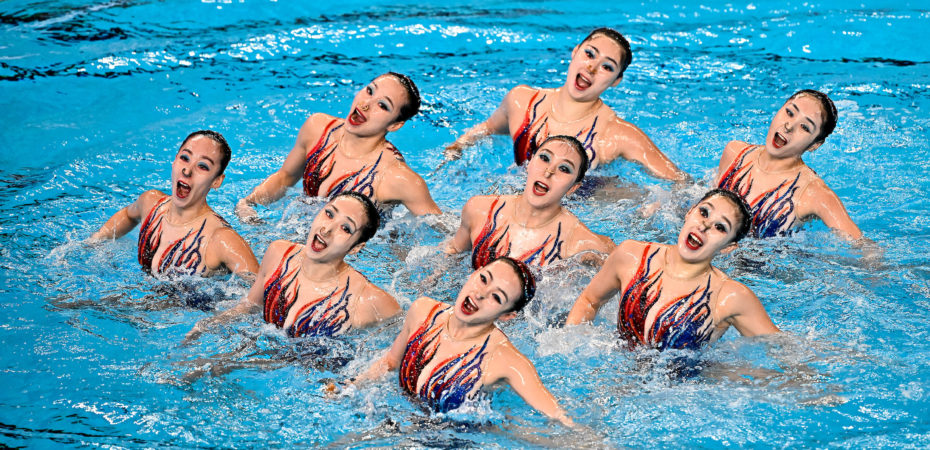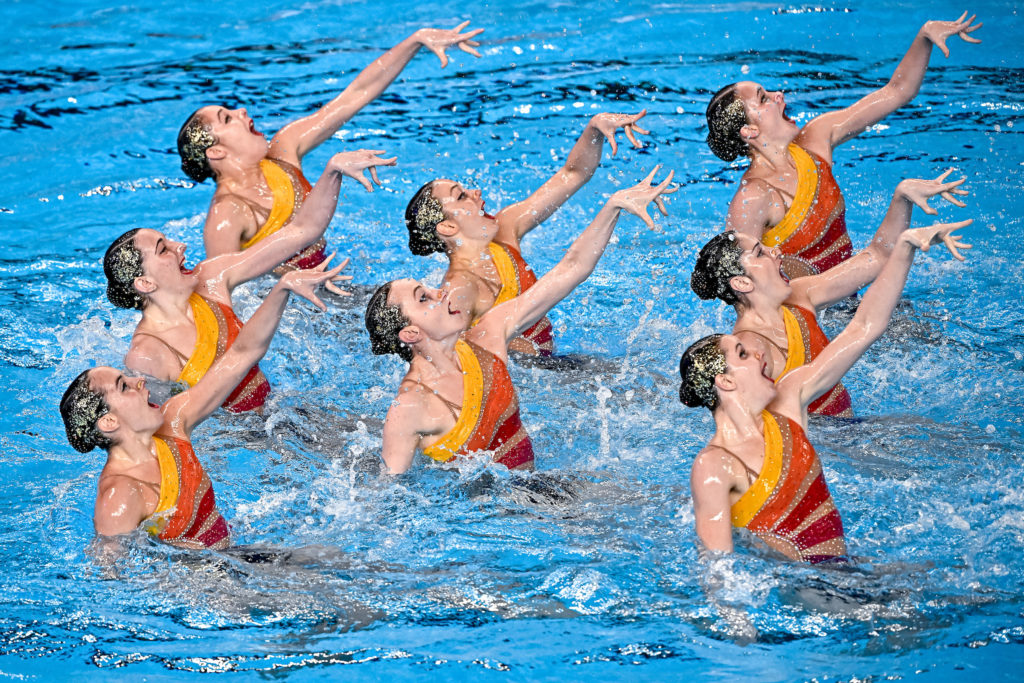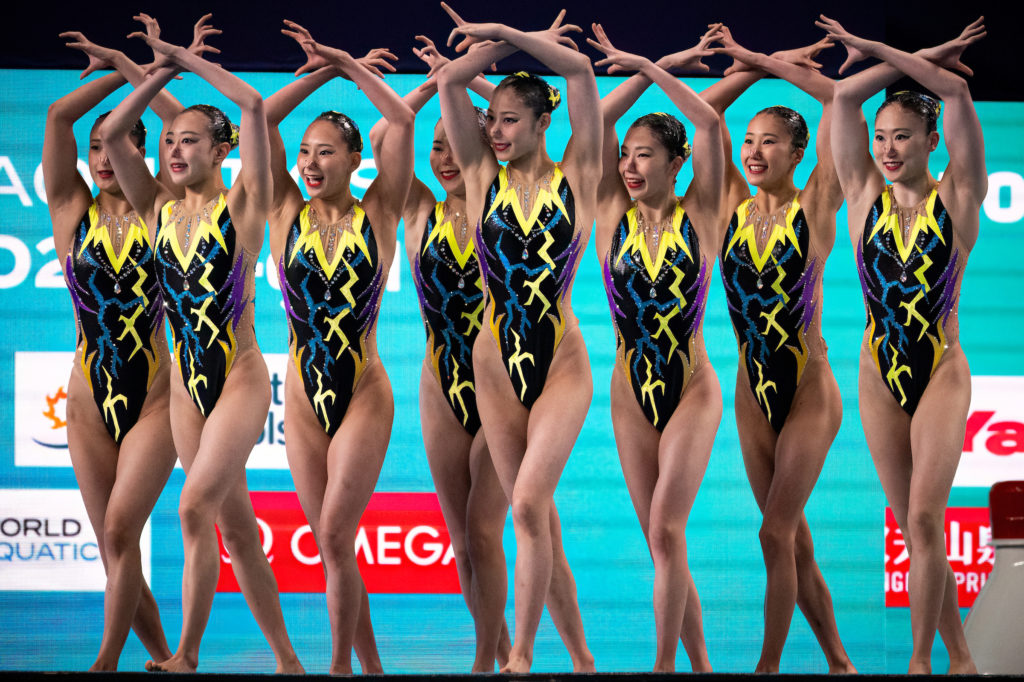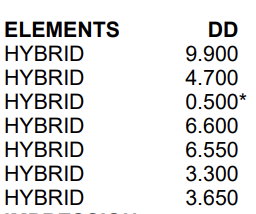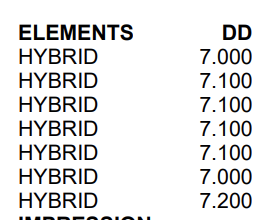We’re at the halfway mark of these World Championships in Doha, and this fifth day of competition was certainly interesting. In the early afternoon, China won the technical team event with a dominating performance. Later in the evening, Jacqueline Simoneau of Canada became the new World Champion in the free solo event, bringing the country its first World Championships gold in solo in 33 years. Earlier in the day, Yang Shuncheng of China secured the top spot in the men’s free solo preliminaries with a score of 213.9999.
TECHNICAL TEAM FINAL
All the technical events are now done and dusted at these World Championships. In the first final of the day, China claimed its fourth gold medal of these World Championships in the technical team event.
World Champion in 2022, the country had landed in a shocking seventh place in 2023 after receiving two basemarks. In Doha, the same eight athletes returned, and this time left no room for discussion as to whether they were the best team that day.
The Chinese showcased an outstanding routine, displaying impeccable technique and height, astounding precision and control, and perfect mastery of their choreography and every detail. They were miles above the rest of the field, and deservedly captured the gold medal with a score of 299.8712 and a lead of nearly 24 points.
“We feel so happy to win this gold medal,” team captain Feng Yu said. “Our routine was difficult but I am glad we managed it. I am very proud of the girls. Last year we lost in this event, so today it is very special. It is hard to describe how exciting it is.”
The gap was much smaller between the silver and bronze medalists. Japan and Spain had placed second and third, respectively, in the preliminaries. However, the Spaniards decided to increase their Degree of Difficulty (DD) by 0.30 for the final, equaling China’s 45.00 as the highest of the field. The bet paid off, and Spain, World Champion in 2023, was able to edge out Japan for silver by only 0.0138 points.
“We only cared about showing the best version of ourselves and didn’t really think about the medals and our final position in this particular event,” Txell Mas said. “We tried to make our best swim and we just did that. We enjoyed ourselves a lot and I think that the spectators enjoyed it too. There’s still much work for us to do here in Doha. The principal goal is to get the Olympic qualification, and we will keep fighting for this until the last moment.”
The Spaniards showcased their new choreography set to “The Dance at the Gym: Mambo” from West Side Story, and scored 275.8925. Seven of the eight athletes who had won gold last summer returned to this event here, while 17-year-old Lilou Lluis Valette earned her first senior World Championship medal. The Spanish athletes have an unmatched performance ability and energy in the water, often leaving a long-lasting impression even after the routine is long over.
“Team Spain is identified by the artistic expression and creativity, which make us stand out,” Iris Tió said. “This result serves us well in view of the Olympic qualification and ahead of the team free. It is a big push of energy, motivation and confidence. We have been training really hard since Fukuoka. Our goal is clear and all our team members are thinking and working as one.”
Japan claimed bronze in Doha with a score of 275.8787 for its “Thunder” routine. The Japanese squad actually “only” had declared the fifth-highest DD of this final with 41.10. However, their exquisite execution and technical elements, coupled with a strong artistic impression, helped them back up to the podium. The Japanese had won silver in 2022 but, just like China, had found themselves empty-handed in 2023.
“We are happy to win the bronze medal,” Yoshida Megumu said. “We came into the event today with the mindset of giving our best performance. We executed our routine very well, and we are happy to give Japan a first medal at this competition.”
USA and Italy, the bronze and silver medalists in 2023, as well as Canada and Israel all managed clean swims with no basemarks to keep themselves in the hunt for a ticket to the Paris Olympics. Besides Spain, Israel was the only team to make any changes to its DD before this final, but the nation decided to instead decrease it by 0.45. The Israelis had received a basemark on their second free hybrid in the preliminaries and decided to play it safe for this final by slightly simplifying that same hybrid. It did work out for them, and they finished seventh with a score of 237.6533.
The road to Paris is certainly looking more complicated than they would have hoped by now for the Ukrainians, reigning Olympic bronze medalists. The Ukrainians already had troubles on their final hybrid in the preliminaries, with one athlete getting lost in the middle of it, so the team incurred both a basemark and significant synchronization errors there. Sadly, the problem repeated itself again in the final, albeit with a different swimmer, leading to another basemark and big synchronization deductions. On top of that, the team suffered a second basemark on its second free hybrid, and finished in 10th with a score of 206.7175.
After two, here are the running totals for the team Olympic qualification: USA 509.1633, Spain 495.8292, Japan 482.6221, Canada 475.4917, Italy 474.1684, Ukraine 450.0342 and Israel 426.1934.
Naturally, it’s not over yet, and the scores from the free team event still have to weigh in the balance. Everything may change if one or more of these nations does not make it out of the free team preliminaries.
FREE SOLO FINAL – WOMEN
This women’s free solo final certainly raised the question of, what is ARTistic swimming nowadays? Or rather, where is it? Within the new rules, how do you define a solo, a routine that used to be all about showcasing a swimmer’s strengths, personality, individuality? What is it now except a challenge as to who can do the most R7 in a routine? And, seriously, what are we putting these athletes through?
Anyways, the most iconic performance of the night undoubtedly came from Vasilina Khandoshka, the Belarusian athlete competing under the Neutral Individual Athlete flag in Doha. Preliminaries were such a breeze, she had just casually decided to be artistic in one hybrid, and that gave her a basemark.
Between that and placing fourth in the technical solo, tonight, she had clearly had it. She changed her entire Coach Card, increased her DD from the preliminary round by 10.70, and removed essentially everything in her solo but R7s, giving the people (well, not necessarily us viewers) what they wanted. Because, why bother with Thrusts and Airborne Weights and Flexibility, or any variety and complexity, after all?
Perhaps she simply wanted a world medal. Perhaps she also wanted to see how far she could push the system and get away with it. Perhaps both, and while being at it, to shine a light on its major flaws, limitations and absurdity, by means of provoking and making a joke out of it. She clearly had the skills, technique, height and extension to go for it anyways. You want these kinds of Rotations? Sure, I will give you these Rotations and nothing else. Preposterous, yes, but let’s see what you do with it.
But look, guys, it worked. Swimming warmup exercises as your entire routine gets you to the podium. Artistic swimming is easy. You could do the same hybrid seven times with essentially three variations, perform the same action over and over, maintain decent height, be credited your full difficulty, STILL get nearly 71 points in artistic impression, and win a world bronze medal. Voilà!
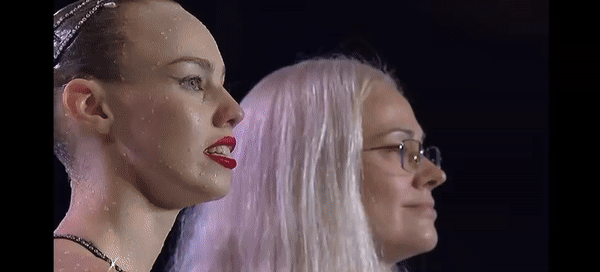
Chapeau.
Jacqueline Simoneau of Canada won gold with a score of 264.8207 for her “Cruella” routine, also increasing her DD by 7.40. This is Canada’s first gold at the World Championships since 1991, where Sylvie Fréchette had also won the world title in solo. Evangelia Platanioti of Greece clinched silver with her routine set to the traditional Sirtaki dance, scoring 253.2833.
Sadly, Vasiliki Alexandri of Austria, silver medalist in 2023 and who had finished first in the preliminaries, suffered two basemarks in this final which dropped her to sixth.
FREE SOLO PRELIMINARY – MEN
Only nine men took part in this free solo preliminary round, and all move on to tomorrow’s final.
Only a few hours after winning gold in the technical solo the night prior, Yang Shuncheng of China showcased another strong performance, placing first with a score of 213.9999 for his “Warriors of the night” routine.
Dennis Gonzalez Boneu of Spain, the reigning World Champion, also managed to come out unscathed out of this preliminary round. He finished second with a score of 191.3562, performing to “I feel like I’m drowing” by Two Feet. He has actually already used this song in 2022, and became a World Junior and European Junior Champion with it.
The reigning European Champion Giorgio Minisini of Italy ranked third with a total of 174.1583 for his routine set to Andrea Bocelli’s Hallelujah. The Italian, silver medalist in the technical event, received three basemarks and will undoubtedly look to perform a clean swim in the final.
The other finalists are Kenny Gaudet of the USA, bronze medalist in 2023, Kantinan Adisaisiributr of Thailand, Gustavo Sanchez of Colombia, silver medalist in 2023, Joel Benavides Lepe of Mexico, Renaud Barral of Belgium and Andy Avila Gonzalez of Cuba.
The men’s free solo final is scheduled for tomorrow, Wednesday, February 7 at 08:00 pm local.
ARTICLE BY CHRISTINA MARMET
Cover photo: Andrea Masini / Deepbluemedia
If you’ve enjoyed our coverage, please consider donating to Inside Synchro! Any amount helps us run the site and travel costs to cover meets during the season.

